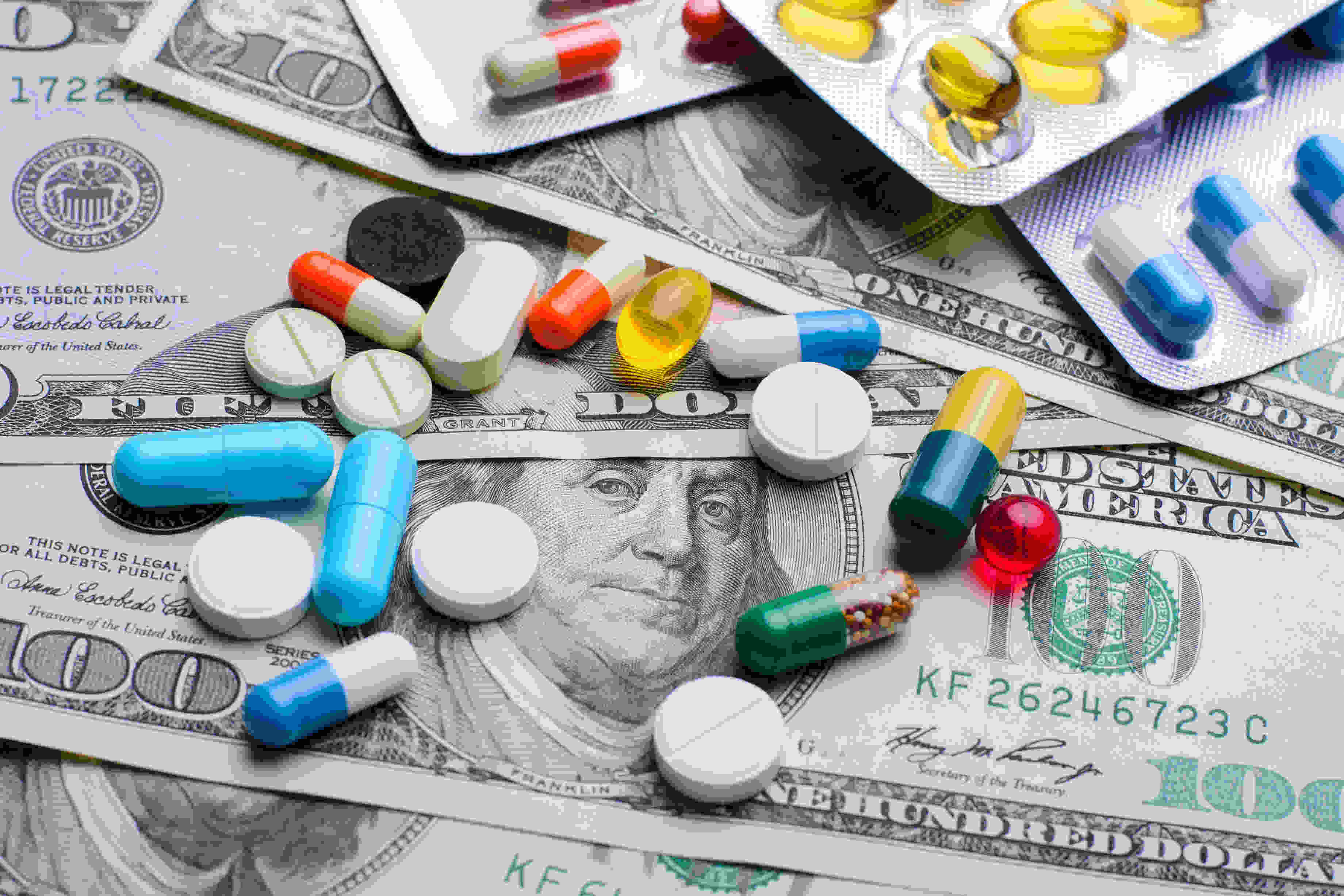What is Dry January, and why is everyone talking about it?
You’ve probably seen some of the hype around Dry January this month. It is an annual event in which participants abstain from alcohol for the entire month of January. Since the initial campaign by Alcohol Change UK in 2013,1 this challenge has surged in popularity thanks to social media, achieving an approximate 35% participation rate for 2022 in the United States.2
It makes sense that, during a time when we feel the need for a reset or resolution, abstaining from alcohol becomes an interesting challenge. Not to mention the potential physical, mental and financial benefits that come with it, the extent of which varies for each of us, particularly depending on the frequency with which we regularly indulge in alcohol. Drinking status — excluding binge drinking — is typically classified by the average number of drinks consumed per week, for example:3
- Light: Three or less
- Moderate: Four to seven (women) or 14 (men)
- Heavy: More than seven (women) or 14 (men)
- *Binge: Four (women) or five (men) or more drinks within approximately two hours
Whether you're detoxing with Dry January after a busy holiday season, joining the sober-curious movement, or just wanting to cut back, you can explore the many benefits of not drinking alcohol any time of the year. Here are nine health reasons to try a dry month:
1. “My liver deserves a break.”
Alcohol is hard on your liver because when you drink, it is your liver's responsibility to break down the alcohol within your body, and the breakdown process creates harmful substances. Consuming too much alcohol for your liver to process causes it to become overwhelmed by toxins, leading to inflammation.4 Over time, this damage can lead to severe liver disease — of the 100,530 liver disease deaths recorded in 2021, 47.4% were attributed to alcohol abuse.5
Taking a break from alcohol can help decrease alcohol-induced inflammation, giving your liver a much-needed break. Studies have found that even two- or three-week breaks from alcohol can have promising results.6
2. “I’m reducing my risk of cancer.”
Alcohol primarily increases your risk of six types of cancer: mouth and throat, voice box, esophagus, colon and rectum, liver and breast.7 This is because when your body breaks down the ethanol in alcoholic beverages, it produces a carcinogenic substance called acetaldehyde.
Recent estimates for the United States indicate that 5.6% of cancer cases and 4% of cancer deaths are attributable to alcohol consumption.8 It's not just heavy drinking either — those who consume no more than one drink per day or binge drink on occasion have an increased risk, according to the National Cancer Institute. For example, compared with not drinking, light drinking increases the risk of esophageal cancer by 1.3x, and moderate drinking increases the risk of mouth and throat cancer by 1.8x.9 There is also evidence to suggest that alcohol may increase the risk of other cancers such as stomach, pancreatic and prostate cancer.10
3. “I want to catch better ZZZs.”
Though the sedative effects of alcohol may help you fall asleep faster, it can lead to less restful sleep overall due to its disruption of the sleep cycle. High alcohol use is associated with chronic sleep issues, including fewer periods of slow-wave sleep (i.e. deep sleep), the third and most restorative stage in the cycle.11
Even low alcohol consumption can have a surprisingly negative influence. According to one sleep study analyzing the impact of heart rate variability on the physiological state during sleep, low, moderate and high alcohol consumption levels decreased sleep quality by 9.3%, 24% and 39.2%, respectively.12 A dry month's influence on better sleep alone can profoundly affect your mental and physical well-being.
4. “I’m healing my gut.”
As the primary point of contact for alcohol breaking down in your body and entering your bloodstream, your gut is in contact with the highest amounts of ethanol (and acetaldehyde) and naturally feels the results.13
Alcohol hurts your gastrointestinal (GI) tract by messing up the microbes in your gut microbiome, which are essential to normal gut function.14 Disrupting this bacteria increases inflammation and disrupts digestion, leading to bloating, diarrhea and, over time, other severe gastrointestinal conditions.15 Alcohol can also irritate the cells of your stomach lining, causing a form of inflammation known as gastritis, which includes symptoms like abdominal pain, nausea and vomiting.16 Adjusting your drinking habits could be the reset your body needs for a healthy and balanced gut.
5. “I’m showing my heart some love.”
There has long been an association between high consumption of alcohol and hypertension. However, studies have found that even a lower intake can increase blood pressure over time,17 with the risk growing exponentially alongside increased drinking levels.18 In addition to high blood pressure, which raises the risk of heart attack or stroke, heart damage from alcohol can cause other cardiovascular issues like cardiomyopathy and arrhythmias.19
Decreased alcohol intake is not the only thing that can help with heart health. Cholesterol, triglycerides and blood glucose levels impact your risk of cardiovascular disease — assess your levels from home before and after your dry month with imaware's Baseline Heart Health Test to measure any improvements in your heart health indicators.
6. “I’m managing my weight.”
Frequent alcohol consumption can affect body weight in a few different ways. Upon ingestion, alcohol becomes a top priority for your metabolism, taking it away from processing other things in your body, like carbohydrates or fats.20 Not only does alcohol mess with weight through the metabolism, but between high-calorie alcohols (like beer) and popular mixes with sodas and syrups, alcohol use increases our caloric intake with little to no nutritional return.21 Drinking also leads to more disinhibition regarding food, increasing snack cravings and indulgences.22
Conversely, abstaining from alcohol has proven weight management benefits. Participants in one Dry January experiment recorded losing over six pounds, in addition to other benefits like reduced liver fat, cholesterol and glucose levels.23
7. “I’m taking skincare to the next level.”
Due to its inflammatory effects, alcohol affects various skin conditions, including psoriasis and rosacea.24 Rosacea, a long-term condition that causes reddened skin and rashes on the nose and cheeks, is one of the most common conditions known to be triggered by alcohol. However, it is important to note that having rosacea is not indicative that someone drinks.25 Other effects of alcohol may include flare-ups of inflammatory pink bumps or pimples.
Another way alcohol can affect your skin is because, as a diuretic, alcohol dehydrates your body.26 Chronic dehydration has side effects on your skin, including reduced elasticity and wrinkling.27 So, by not drinking alcohol and instead focusing on hydration, you might look like you've been drinking from the Fountain of Youth for a month.
8. “I’m trying to avoid getting sick.”
Alcohol compromises the body's immune system by killing healthy bacteria and suppressing responses in critical areas, like gut microbiomes and ciliary function in the upper airways.28 This increases the body's susceptibility to severe conditions, putting individuals at risk for adverse outcomes.29 According to the CDC, heavy drinkers are ten times more likely to develop bacterial pneumonia.30
Even if you do not regularly consume alcohol, drinking a lot on a single occasion (i.e. binge drinking) hinders your immune system for up to 24 hours.31 During the months of peak cold and flu season, December to February, it is a particularly beneficial time to take a pass on alcohol and test your immune system health.
9. “I’m supporting my hormones.”
Alcohol consumption, both acute and long-term, can affect the endocrine system, which is responsible for the production and release of hormones.
Hormonal disruptions impact systems throughout the body, including immune, stress, reproductive and growth.32 Alcohol use negatively affects reproduction, for example, by messing up the hypothalamic-pituitary-gonadal (HPG) axis, which oversees critical hormones like testosterone, estrogen and progesterone.33 Alcohol may also affect the hypothalamic-pituitary-thyroid (HPT) axis, directly and indirectly suppressing thyroid functionality and, thus, thyroid hormone levels.34
Curious about your hormone levels? Easily measure yours from home with imaware's Testosterone Monitoring Test or Thyroid Screening Test.
Summary
Though Dry January is timed for when we bid farewell to holiday indulgences and embark on a new year, its purpose is to remind us to re-evaluate our drinking habits, prioritize well-being and set the tone for healthier lifestyle choices year-round. Whether motivated by a desire to reset, get better sleep, lose weight or address other health concerns, the cumulative benefits of a dry month are not restricted to the beginning of a new year or 31 days. People need to consider their relationship with alcohol and the potential effects it can have on their bodies in order to achieve a more balanced and health-conscious future.














.svg)




